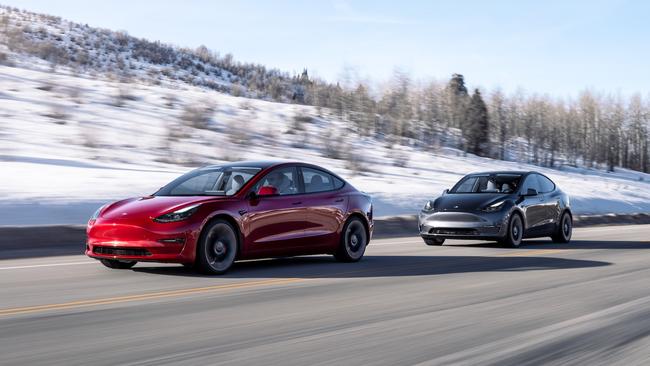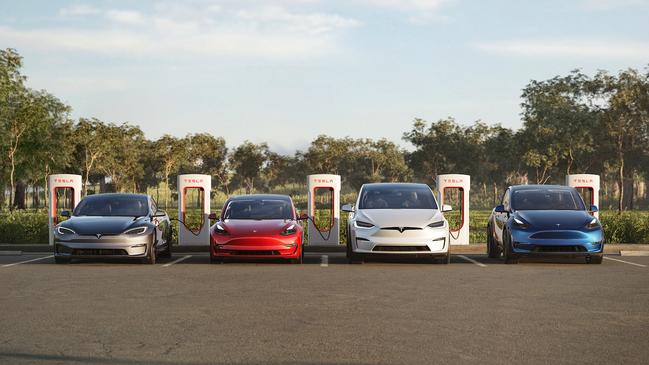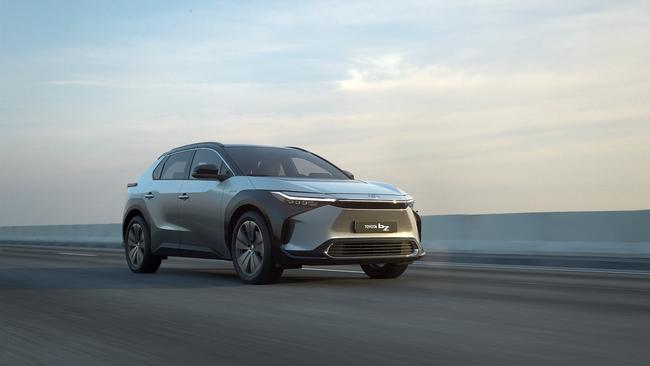Tesla leads and Toyota trails in energy transition leaders’ list
Tesla has taken out the top spot on the ICCT report with an overall rating of 83 out of 100, while Toyota trails far behind at 30 out of 100.

When it comes to steering the giant global car industry in the direction of zero-emission vehicles, Japan - and the world’s largest car company, Toyota in particular - is lagging behind, according to a new report from the International Council on Clean Transportation.
The International Council on Clean Transportation (ICCT) - the non-profit research organisation that helped uncover the infamous Volkswagen “Dieselgate” scandal in 2015 - has released a report called “The Global Automaker Rating 2022: Who is leading the transition to electric vehicles?”, in which it rates how effectively the world’s 20 largest car makers are adapting to an EV future.
The report, which analysed data from China, Japan, India, Korea, the US and the European Union, evaluates automobile manufacturers on their performance and strategies across measures including their technological performance and strategic vision for decarbonisation.
The 20 manufacturers chosen for the report account for 65 per cent of all car sales globally, and out of the list, US-based Tesla - which has the advantage of only ever making EVs - earned the highest overall rating, with Chinese giant BYD (Build Your Dreams), which announced in 2022 that it would only build zero-emission vehicles, in second.

Out of possible scores of 100, Tesla was marked 69 for its market dominance, 80 for technology performance and a perfect 100 for strategic vision, although the researchers note the Elon Musk-owned brand did lose some credit due to the small number of variants it currently offers.
While that left Tesla with an overall rating of 83, it was joined by BYD, with a score of 73, in the top tier of car makers designated by the ICCT report as “leaders”. Below that were 12 brands rated as “transitioners”, including BMW (56), Volkswagen (53), Renault (47), Ford (38) and Hyundai/Kia (38).
Of the bottom-rated group of six brands, dubbed “the laggards”, five were from Japan, including Toyota (30), Honda (28), Nissan (27), and Mazda, with a shockingly low score of 10 and Suzuki on zero. Indian giant Tata rounded out the laggards, with 27.

The report noted that manufacturers in Japan, and India, needed to catch up to their competitors.
“All five manufacturers headquartered in Japan and Tata, headquartered in India, are at the bottom of our rating,” the report said.
“To improve, they need to increase their EV sales, set public ZEV targets, and invest in ZEVs. It is the case, though, that in the absence of effective government policies, the domestic markets for EVs in Japan and India are anaemic at present. However, these companies would have rated higher if they had announced stronger targets and investment plans for the ZEV transition.”
Rachel Muncrief, acting executive director of the ICCT, was particularly impressed with the performance of VW, which was caught out in 2015 faking the amount of pollution coming out of its diesel-engined cars in official testing by creating so-called “default” devices.

“Considering the Dieselgate scandal was only seven years ago, it is remarkable to see VW emerge as a serious leader in the transition to 100 per cent zero-emissions vehicles,” Ms Muncrief said.
The ICCT’s project manager and passenger vehicle program lead explained that its report was a forward-looking analysis of manufacturer preparedness for electrification and used independent data rather than self-reported information or corporate surveys. The ICCT plans to update the ratings annually.
“Our goal with this report was to provide a data-driven, transparent analysis of automakers’ progress toward decarbonisation, in their plans and actions,” ICCT program lead Zifei Yang added.
The ICCT’s own modelling indicates that nearly 100 per cent of all new passenger vehicles sold in leading markets by 2035 will need to have zero tailpipe emissions to put the transportation sector on a trajectory towards limiting global warming to below 2 °C, as defined in the Paris Climate Agreement.



To join the conversation, please log in. Don't have an account? Register
Join the conversation, you are commenting as Logout